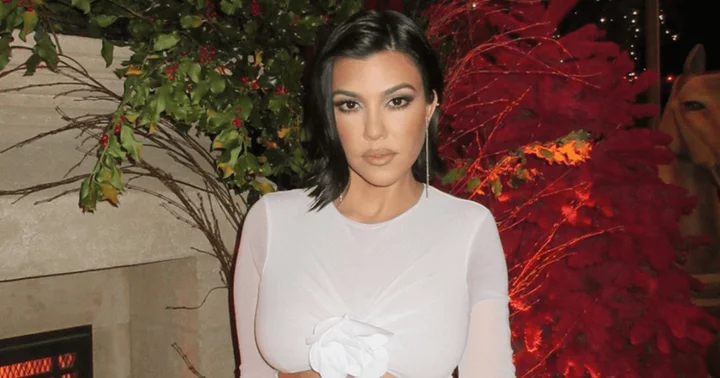
Pregnant Kourtney Kardashian drops major clue about her due date as she promotes Lemme gummies
Kourtney Kardashian recently shared a noteworthy hint on Instagram that seems to allude to her son's expected due date for birth
2023-09-17 17:16

Lesbian couple win Hong Kong court victory in IVF case
A Hong Kong court has sided with a lesbian couple who argued that both women should have parental status over their child born via "reciprocal IVF", a...
2023-09-16 21:59

These candidates in Virginia could shape how both parties talk about abortion in 2024
The new epicenter of America's fight over abortion rights is Henrico County, Virginia, where candidates in bellwether state elections this fall are staking out positions that could test how both parties will try to appeal to moderate voters in 2024.
2023-09-16 17:24

Who are Hugh Jackman and Deborra-Lee's children? Star once said their children 'melted all the heartache'
Hugh Jackman and Deborra-Lee Furness raised their children away from the public eye
2023-09-16 05:49
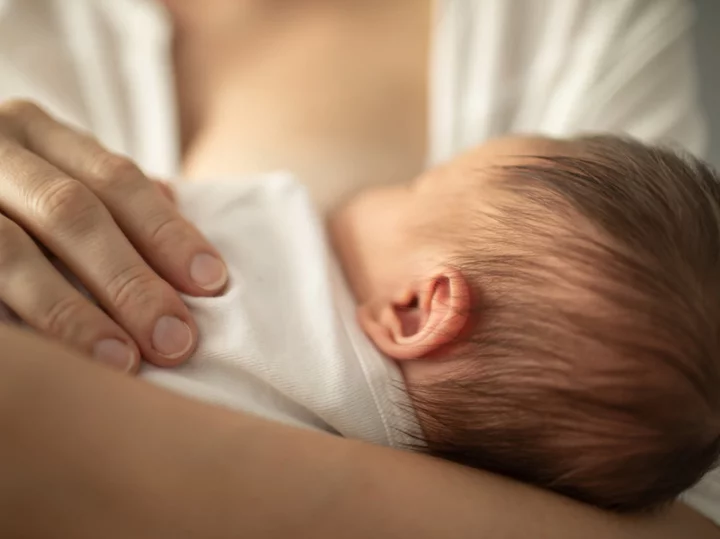
Mom breastfeeds her son at four years old and has no plans to stop
A mother has said she still breastfeeds her four-year-old son and has no plans to stop any time soon. Allison Yarrow, the journalist and author behind Birth Control: The Insidious Power of Men Over Motherhood, reportedly told People that she hasn’t stopped breastfeeding because she believes it makes her son dependent on her and vice versa. “We haven’t stopped breastfeeding because breastfeeding works for us,” Yarrow explained to the outlet. “It’s something we do once or twice a day. Sometimes it happens more than that if he’s hurt or sick, but it is a way that we connect and communicate with each other.” Within the first hour of birth, babies should initiate breastfeeding and be exclusively breastfed for the first six months of their lives, according to the World Health Organization (WHO). Health officials advise that babies should only be breastfed on demand from six months to “up to two years of age or beyond.” In June 2022, The American Academy of Pediatrics agreed with their recommendation, adding that they supported continued breastfeeding only as long as it was “mutually desired for two years or beyond.” Yarrow advocates for continued breastfeeding, citing multiple benefits: “The research shows that breastfeeding can reduce breast and ovarian cancers. The hormone oxytocin is released when you breastfeed, so it actually feels good.” While breastfeeding is also associated with small neurodevelopmental outcomes in children, according to the Mayo Clinic, is also “associated with a reduction in acute infections as well as chronic adult conditions like obesity, cancer, heart disease and allergies.” “It’s a way of connecting,” Yarrow continued. “And I don’t think I would still be doing it if I didn’t enjoy it. I wouldn’t be just sacrificing myself at this stage. My four-year-old has other food, right? He’s not coming to me for food.” “We still breastfeed because it’s a way to connect with each other. We feel good. It’s intimacy. It’s looking into each other’s eyes. It’s cuddling. It’s having a physical connection. And that strengthens our connection in general,” Yarrow added. Yarrow’s decision to continue breastfeeding well past the age of two is considered taboo to most Americans, but she explained to the outlet that she believes this mentality is more indicative of misogyny in American culture. “Our culture really doesn’t support women doing things with their bodies that they want to be doing, so that certainly extends into breastfeeding,” Yarrow noted. “There’s really poor research about extended breastfeeding. There isn’t a lot of it.” She continued: “And women and people who give birth are really hampered in their quest to breastfeed after their babies are born. We know that the majority of people who give birth want to breastfeed, but most don’t even meet their own breastfeeding goals because accessing lactation support is incredibly difficult.” Yarrow elaborated that poor healthcare and support forces a lot of women to head back into the workplace earlier than they might like. “Often it’s not covered by insurance or Medicaid, and people have to pay out-of-pocket and find somebody to support them in this way when they’re already very vulnerable recovering from childbirth and caring for a newborn,” she said. Read More Mother reacts to video of her breastfeeding taken without her knowledge Woman says she was told not to breastfeed on flight because it would make passengers ‘uncomfortable’ Rumer Willis shuts down criticism over breastfeeding photo with her child: ‘I am the happiest I have been’ Sia says she suffered ‘severe’ three-year depression after Erik Anders Lang divorce David Foster and Katharine McPhee express grief after death of their child’s nanny Mother defended after calling father ‘creepy’ over name choice for newborn daughter
2023-09-16 04:18

Abortion Rules in Chile Survive Threat of Constitutional Rewrite
An clause in the draft of Chile’s new constitution that would have annulled current abortion rules in the
2023-09-16 01:21
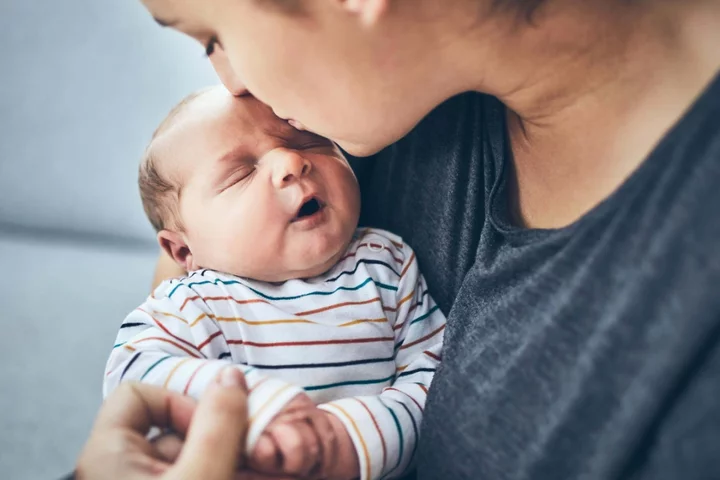
Action needed to protect women from birth trauma – MP
More must be done to protect women from birth trauma, a Tory MP has said after a new poll revealed that traumatic births have prevented a significant proportion of women from having more children. Theo Clarke said that it was “vitally important” that women receive the care and support they need after a traumatic birth. It comes after a poll of members of the Mumsnet community found that more than half (53%) who had suffered birth trauma said their experience put them off having more babies. The MP for Stafford has previously spoken out about her own birth story, where she described how she thought she was “going to die” after suffering a third degree tear and needing emergency surgery. She has since set up an All Party Parliamentary Group (APPG) on Birth Trauma to try to highlight the plight of thousands of women who suffer similar situations each year. A poll of 1,000 members of the Mumsnet website, shared with the PA news agency, found that 79% of those surveyed had experienced birth trauma. While the poll does not represent all mothers across the UK, it provides a snapshot of the experiences of those who use the popular parenting site. The survey also found that 72% of those who had experienced birth trauma said their issue had not been resolved a year after giving birth. Among those who had experienced physical, emotional or psychological birth trauma, 44% said healthcare professionals used language which implied they were “a failure or to blame” for the experience. Three quarters (76%) of all of those polled said they felt that health professionals had become “desensitised” to birth trauma. Almost two thirds (63%) said they did not believe healthcare workers did everything they could to prevent birth trauma. And 64% said they felt a “lack of compassion” from healthcare professionals during labour. Commenting on the poll, Ms Clarke said: “These survey results are deeply upsetting. They speak to my own experience of birth trauma and quite clearly to many, many other women’s horrendous experiences too. “That more than half of women across the UK who responded say they are less likely to want another child because of their birth experiences and they were made to feel they were to blame is simply terrible. “The survey is clear that more compassion, education and better after-care for mothers who suffer birth trauma are desperately needed if we are to see an improvement in mums’ physical wellbeing and mental health. “The APPG is now up and running in Parliament and will continue to listen to mothers and experts to drive fundamental change in how we treat mums. Our ambition is for birth trauma to be included in the Government’s women’s health strategy. “It is vitally important women receive the help and support they deserve.” Mumsnet chief executive Justine Roberts said: “We hear daily on Mumsnet from women who have had deeply upsetting experiences of maternity care, and this latest research underlines that the majority of mothers experience birth trauma – whether physical or psychological. “This trauma has long-lasting effects and it’s clear that women are being failed at every stage of the maternity care process – with too little information provided beforehand, a lack of compassion from staff during birth, and substandard postnatal care for mothers’ physical and mental health.” Kim Thomas, chief executive of the Birth Trauma Association, added: “It is time for a complete overhaul in the way women experience maternity. “This should include: honest, evidence-based antenatal education; compassionate and professional care during labour; and postnatal care that is designed to identify and treat every birth injury or mental health problem. “A maternity system that puts women at the heart of care is not some kind of unfeasibly high goal – it is the bare minimum that women have the right to expect.” A Department of Health and Social Care spokesperson said: “We are committed to making the NHS the safest place in the world to give birth, and improving support for women before, during and after pregnancy is a priority in the Women’s Health Strategy. “We are investing an additional £165 million per year to grow and support the maternity workforce and improve neonatal care. NHS England recently published a three-year plan to make maternity and neonatal care safer, more personalised, and more equitable for women, babies, and families. “To support women following trauma related to their maternity experience, we are rolling out 33 new maternal mental health services, which will be available across England by March 2024.” Read More Charity boss speaks out over ‘traumatic’ encounter with royal aide Ukraine war’s heaviest fight rages in east - follow live Imagination and hard work in children trumps obedience – research finds 7 ways you could be damaging your eye health without even realising Celebrities mingle with royals at glam Vogue World party in London
2023-09-15 16:18

Planned Parenthood sues to expand South Carolina abortion access under strict new ban
Abortion providers in South Carolina want to lengthen the narrow window when they can legally terminate a pregnancy under a strict new ban
2023-09-15 06:25
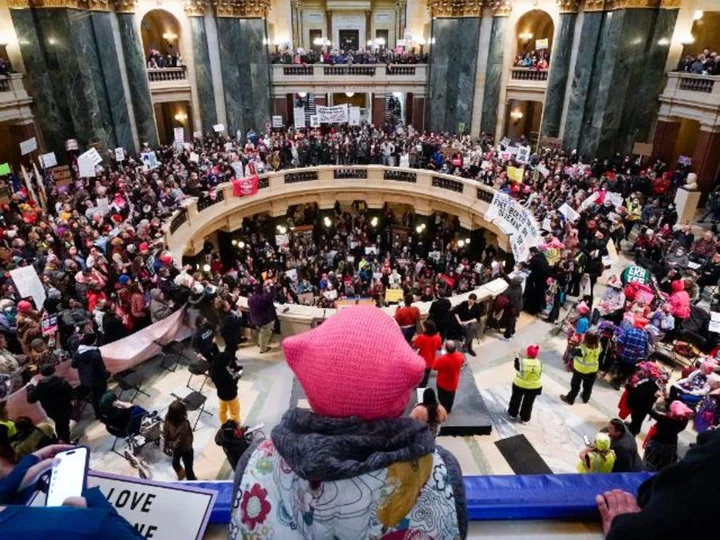
Planned Parenthood will resume abortions in Wisconsin next week after judge rules 1849 state law doesn't apply
Planned Parenthood of Wisconsin says they will resume abortion care services next week after a judge ruled a state law from 1849 did not apply to abortion procedures.
2023-09-15 05:19
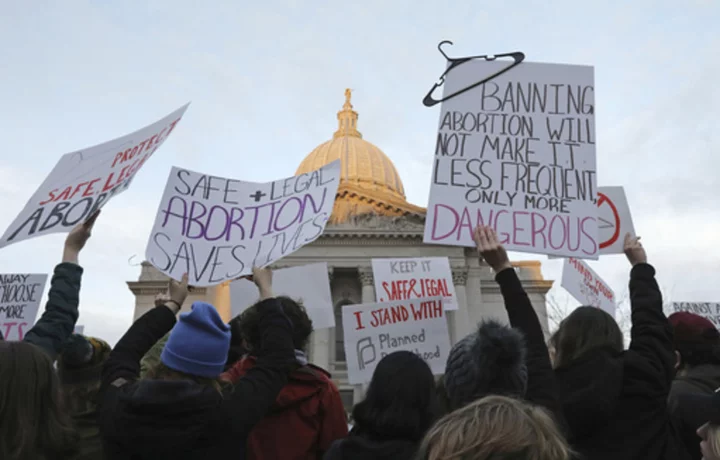
Planned Parenthood to resume offering abortions next week in Wisconsin, citing court ruling
Planned Parenthood says that it will resume offering abortions in Wisconsin next week after a judge ruled that an 1849 law that seemingly banned the procedure actually didn’t apply to abortions
2023-09-15 00:27

European rights court upholds French ban on posthumous procreation
The European Court of Human Rights (ECHR) on Thursday upheld France's ban on procreation using stored gametes or embryos originating from a...
2023-09-14 20:51
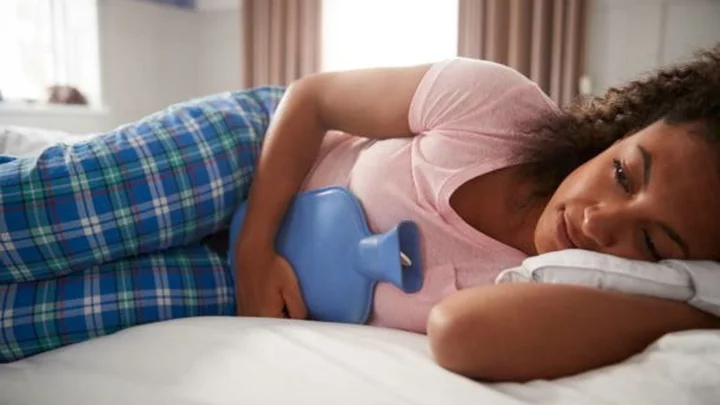
Study discovers vast numbers of women experience mental health issues because of period pain
A study has shown that millions of women and girls experience debilitating periods, that even cause mental health problems. A survey of 3,000 women and girls in the UK aged 16 to 40 for the Wellbeing of Women charity found that 86 per cent had had mental health problems, such as depression, anxiety and mood changes, in relation to their period, Meanwhile, of those surveyed, 96 per cent had experienced period pain, with 59 per cent saying their pain was severe. 91 per cent had experienced heavy periods, with 49 per cent saying their bleeding was severe. Even though these are common symptoms in women and girls with gynaecological conditions such as endometriosis, adenomyosis, fibroids and polycystic ovary syndrome, the report found that 51 per cent of respondents felt their healthcare professional had failed to take their problems seriously, and 82 per cent said they needed better access to accurate information on period problems. A further one-third never seek medical help, and more than half say their symptoms are not taken seriously, despite other symptoms including pain, heavy bleeding and irregular cycles. Prof Dame Lesley Regan, the chair of Wellbeing of Women, said: “It’s simply unacceptable that anyone is expected to suffer with period symptoms that disrupt their lives, including taking time off school, work, or their caring responsibilities, all of which may result in avoidable mental health problems. “Periods should not affect women’s lives in this way. If they do, it can be a sign of a gynaecological condition that requires attention and ongoing support – not dismissal.” Wellbeing of Women has launched its “Just a Period” campaign, which Regan said aims to address “the many years of medical bias, neglect and stigma in women’s health”. This includes tips on how to get the most out of seeing your GP and what women should do if they feel they have been dismissed by health professionals. Responding to the findings, Dr Ranee Thakar, the president of the Royal College of Obstetricians and Gynaecologists, said: “All too often women are living with debilitating symptoms, waiting to receive support or treatment for far longer than they should. “Access to high-quality information and support about periods, gynaecological conditions and their symptoms is vital to ensuring that women and girls get the help that they need at the right time.” Caroline Nokes, the Conservative MP and chair of the women and equalities committee, which is conducting an inquiry into reproductive and gynaecological health, said: “There is a terrible phrase: ‘Well, it’s just a period, why are you making a fuss about that? Can’t you just get on with it?’ Yet many women and girls are experiencing horrendous period symptoms and gynaecological conditions. Endometriosis alone affects 1.5 million women in the UK and costs the economy £8.2bn. Now is the time for change.” Anneliese Dodds, the shadow secretary of state for women and equalities, said: “Over the past few years, we have opened up the conversation around the menopause, and now we need to see this change with periods as well.” Sign up to our free Indy100 weekly newsletter Have your say in our news democracy. Click the upvote icon at the top of the page to help raise this article through the indy100 rankings.
2023-09-14 17:56
You Might Like...
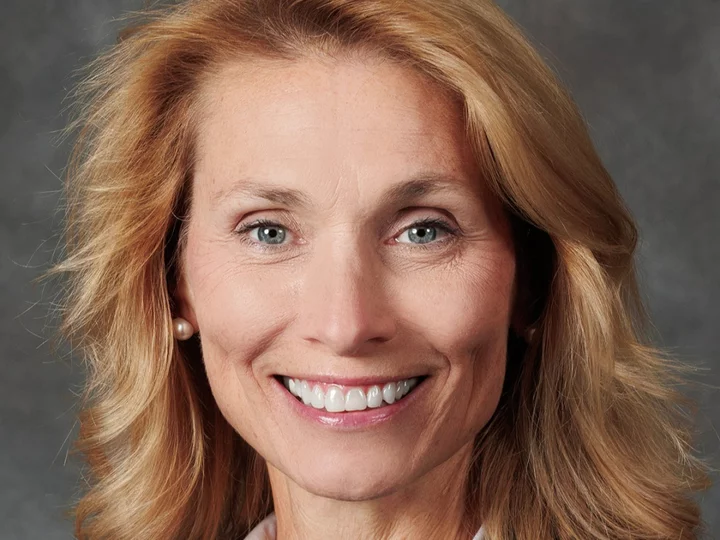
Nebraska GOP senator who voted for anti-trans and anti-abortion bill that passed by one vote admits she didn’t pay attention to the issue
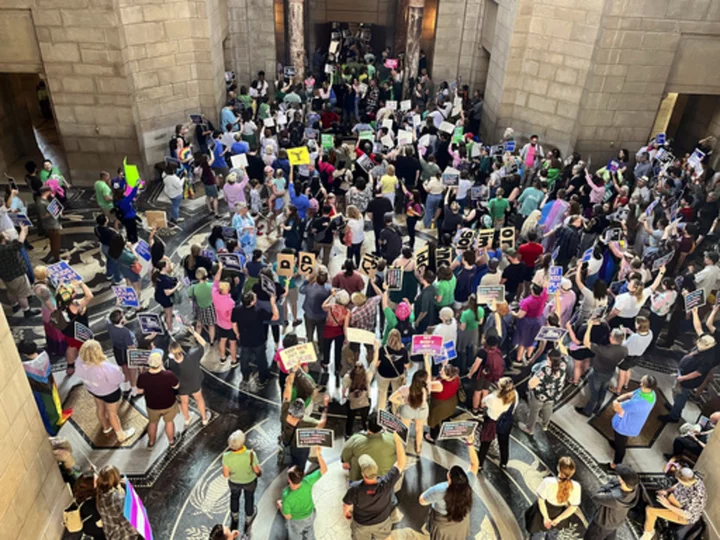
18-year-old Nebraska woman sentenced to 90 days in jail for burning fetus after abortion

Kim Kardashian says she hides her true feelings about ex-husband Kanye West around their children

Takeaways from CNN's town hall with Nikki Haley

Three GOP appointees, including 2 from Trump, will hear the next phase of major abortion pill case
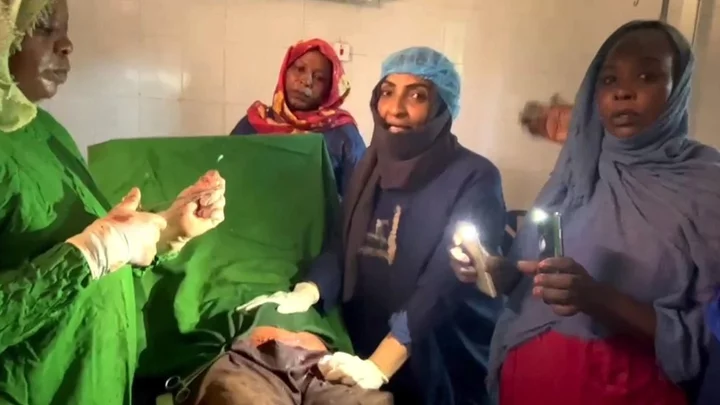
Sudan conflict: Caesarean by phone light - giving birth in a warzone

8 Historical Methods of Detecting Pregnancy

Indiana doctor reprimanded for talking publicly about Ohio 10-year-old's abortion
